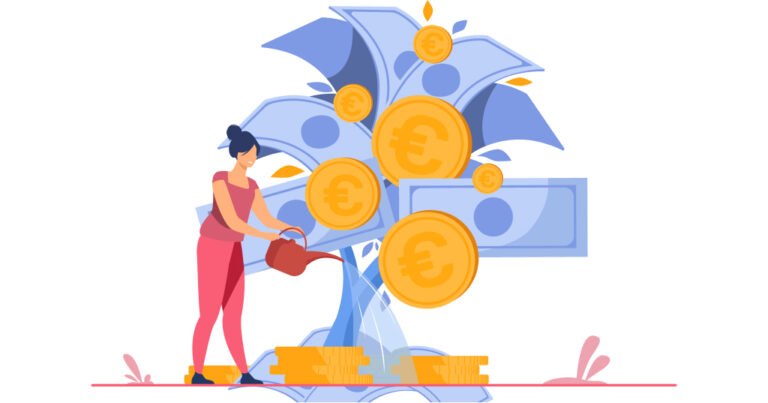
Should I Invest My Money or Pay off Debt?
If you’ve been reading up on this blog, you’ve probably noticed it’s mostly all about saving, investing, and the multiplication of your wealth. And, even though it’s already been a little while since the turn of the year, our New Year’s resolution is to proceed accordingly and explore ways and means that help in building personal wealth and financial independence.
Through exploring similar topics previously, we’ve already established two important facts:
- You should make paying off high-interest debts your priority
- Check fact above.
All jokes aside, you already know how important it is to pay off high-interest debt, to build your wealth. The interest rates that these sorts of loans carry, usually tower over any potential ROI you could earn. Therefore, by returning high-interest loans, you’re effectively making investments.
However, this wouldn’t make much of a blog entry if we ended it after merely two paragraphs, would it? Naturally, there are more sides to this story.
All debts aren’t created equal.
If we simply consider only high-interest debts in this equation, there isn’t much more to explore. Yet, high-interest loans usually aren’t the largest lumps of money people tend to borrow during their lives. This honour is typically left to mortgages and car leases.
Even though mortgages and car leases tend to have higher total APR’s than, say, credit cards or personal loans – the interest rates charged to credit cards and personal loans vastly overshadow those of the former. Typically, the ranges would be between 2 to 5% for mortgages and car leases, jumping up all the way up to 10-20% for credit cards and personal loans.
Now, you would still pay more in total interest over the life of secured loans like mortgages, than unsecured loans like credit cards, but the comparative amount would be much larger with high-interest loans (hence the moniker).
Depending upon which one of these debts you carry, investing could be a viable route to take.
Why would investing be the better choice?
The answer to this question lies within the whole philosophy of increasing your wealth. Investing in an investment vehicle like stocks or bonds, or other assets that may grow in value over time, is a proven way to increase your wealth. An investment that creates a passive income can also allow you to retire earlier and live out your days much more comfortably.
Again, you need to consider the interest rate of your debt and the ROI or return on interest of the potential investment. For example, if your mortgage carries a 3% interest rate, but your index fund investment has a 6% ROI, it would be the sensible move to invest. Likewise, if your credit card interest rate is 15%, but the government bond you want to invest in has a fixed ROI of 1%, repay that credit card debt as soon as possible.
Why not both?
Even if the debt you have is low-interest/long-term, like a mortgage, you can still try to repay it sooner, while at the same time investing the money you can spare.
By repaying any debt earlier, you are bound to reduce the total interest paid. Long term, that will help you build your wealth quicker than if you just paid in monthly instalments throughout the life of the loan.
What if you can’t do either?
If you’re struggling to do either, it can mean one or more of these:
- your total debt amount is too high, and you can’t cope;
- you have to review your budget and/or minimize your expenses;
- you need to acquire a means of generating extra income.
To tackle any of these problems, it’s important to start at the root of each one.
For example, if your total debt is too high, and you can’t cope with monthly payments, contact your lender and re-negotiate a lower interest rate or lower monthly payments over a longer term. If that fails, try to refinance the loan(s). Often this way, you can secure a lower interest rate as well as a more manageable payment schedule.
Generating extra income might involve a bit more of your imagination, but it can sometimes be as simple as monetizing a hobby you’ve been engaged in for years or simply picking up extra hours at your current job/profession.
‘What should I do then?’
This is a financial decision. You should already know better than to allow others to make a financial decision in your stead. But here are some pointers anyway:
- Debt is usually bad. Don’t let it stick for too long, as it will tamper with your financial growth.
- If your debt is low interest, however, you can try to generate income by investing. This extra income may prove to be helpful in repaying your debt sooner.
- Just like all debts aren’t created equal, so aren’t investment options. Investments can be highly volatile, depending upon the investment vehicle you choose. Typically, the higher the potential ROI, the more volatile the investment. This means that your income from this investment may vary year to year, due to the fluctuations in returns.
In conclusion – each situation may differ in terms of debt, investment options and personal finances. Hence, as per usual, there isn’t one common cure-for-all. What may work for others, may not work for you and vice versa. It is up to you to do your research on how you could eliminate or at least reduce your debt, what type of investment vehicle to use and how exactly to reduce your regular expenses.
And whether you decide to repay your debt or invest, it’s completely up to you. Either way, you’ll be improving financially.
